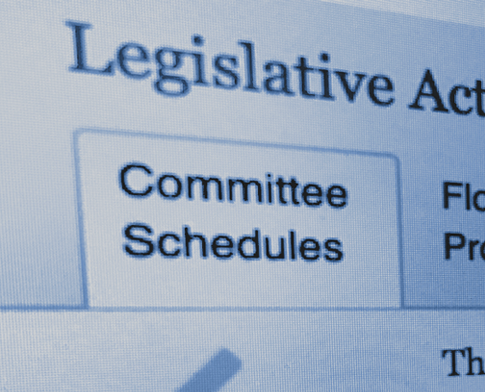Health Update (November 12)
Legal Experts Expect Biden’s Health Care Worker Vaccine Mandate to Hold Up in Court
Last week on Thursday (November 4), the Biden administration released two vaccine mandates, one for health care workers in facilities paid by Medicare and/Medicaid, expected to affect 17 million workers, and one from OSHA for companies that employ a certain number of people. “There will undoubtedly be challenges in court” to the CMS rule, said Frank Morris Jr., a member of Epstein Becker & Green P.C. However, Morris said, there is not “any great likelihood that those challenges would be successful.”
The anticipated resilience comes from the exemptions for religious and medical circumstances, as well as remote employees. Brian Dean Abramson, a professor at Florida International University College of Law, confirmed this, saying “These provisions eliminate two of the most serious potential bases for contesting the mandate.”
The OSHA rule, on the other hand, has already been challenged in 25 states whereas the CMS has not received one. This is likely due to the ability of the federal government to govern the terms of participation in facilities that receive funding (i.e., Medicare and Medicaid). The OSHA rule will have to prove its authority under the guise of “grave danger,” said Rodney Satterwhite, partner at McGuireWoods LLP.[1]
Drug Pricing Provisions in Reconciliation Bill Set to Target Costliest Drugs
Last week, Democrats reached a compromise on the proposed drug pricing measures in President Biden’s Build Back Better Act (BBB) where the government would be allowed to negotiate the prices of drugs that have been approved for at least nine years. That places some of the most expensive drugs on the bargaining table; nearly half of the top ten most expensive drugs for Medicare Part B and Part D in 2019. The administration estimates the bill would reduce government spending by $100 billion over a decade.
“We’re coming out of the gate negotiating over the most expensive drugs: we’re talking cancer, arthritis, anticoagulants,” Senate Finance Committee Chairman Ron Wyden (D-OR) told reporters last week. “That’s a significant change.”
Should the bill be approved, the provisions would not be in effect until 2025 which could mean the medications in the crosshairs could change. Specifically, the provisions would allow the secretary of HHS to pick ten drugs out of the 100 most expensive drugs for price negotiations with the manufacturers. Drugs approved in the last nine years, or 13 years for complex biologic drugs, are off the table as are orphan drugs. There are a handful of drugs that cost Medicare over $1 billion annually, however, many of them are over 10 years old and would be covered under the proposed negotiations.[2]
Drug Researcher Projects Massive Savings if Biosimilars Continue to Challenge Blockbuster Brands
A study from the Pacific Research Institute reported that its calculations showed patients with rheumatoid arthritis and other diseases could collectively save $5.8 billion if more biosimilars were introduced to compete with blockbuster drugs Humira and Enbrel. Wayne Winegarden, the author of the study, said more competition in the biologics space could prove to be more effective at lowering prices than negotiating prices for high-cost drugs, an allusion to the provisions in the BBB.
Currently, biosimilar competitors are limited by the time and cost associated with the development as well as dealing with patent protections. Winegarden described how expedited reviews of biosimilar applications at the FDA and increased funding for development are excellent examples of how the federal government could play a role in expanding the market.
Winegarden emphasized that more attention should be given to calculating the savings that biosimilars could bring and he argued it would help lawmakers and industry leaders better understand the benefits of market competition.
“The idea is looking at the types of savings that competition creates, really trying to document it, will help focus policy towards the institutional reforms that will promote stronger competition,” he said.[3]
To view the full report, click here.
340B Drug Discount Gets Split Rulings
Last week, two federal courts handed down differing decisions on cases over the 340B drug discount program, one supporting HHS and the other disagreeing with it. The 340B program aids low-income Americans by requiring drugmakers to offer products to certain entities at discounted prices.
The first case involved Novartis Pharmaceuticals and United Therapeutics wherein the U.S. District Court for the District of Columbia judge sided with the makers, saying HHS “lacks the authority” to force the companies to resume compliance with the program without “a new statutory provision, legislative rule, or well-developed legal theory.” However, the judge did not grant Novartis’ request to declare its policies permissible under 340B.
The other case involving Novo Nordisk received a ruling in HHS’ favor from the U.S. District Court for the District of New Jersey. The drugmakers “may not unilaterally create and establish policies—whatever the underlying rationale—wherein they dictate how many contract pharmacies a covered entity may designate to receive delivery of covered drugs,” the court said.
The two rulings are the latest development in an ongoing fight between drugmakers and HHS over the program.[4]
Medicare Advantage Plans Costing Billions More Than They Should; Researcher
A newly released analysis of Medicare Advantage (MA) plans by Richard Kronick, a former federal health policy researcher and a professor at the University of California-San Diego, indicates that Medicare overpaid private plans by more than $106 billion from 2010 to 2019. The report attributes the overbilling to how the plans charge for sicker patients, noting that nearly a third of the figure, $34 billion, was between 2018 and 2019.
“They are paying [Medicare Advantage plans] way more than they should,” said Kronick, who served as deputy assistant secretary for health policy HHS during the Obama administration.
MA plans currently enroll around 27 million Americans; 45 percent of the eligible population. Private insurers run these MA plans and argue their popularity is due to additional benefits not found in traditional Medicare plans, such as vision and dental care. In the report, Kronick refers to MA’s rapid growth as a “systemic problem across the industry” which CMS has failed to rein in.
Additionally, he points to dramatic revenue gains for some of the largest insurers like UnitedHealthcare which has about 6 million MA members and received $6 billion in payments in 2019. “This is not small change,” said Joshua Gordon, director of health policy for the Committee for a Responsible Federal Budget, a nonpartisan group. “The problem is just getting worse and worse.”
At the core of the debate is the payment model used; traditional Medicare is based on fee-for-service whereas MA plans are based on a risk score for each patient, hence the earlier point that sicker patients are said to be the primary source of excessive billing. CMS and the Department of Justice have accused the MA plans of gaming the system and finding creative ways to increase enrollees’ risk scores.[5]
Biden Announces FDA Chief Nominee, Already Faces Opposition from Manchin
On Friday (November 12), President Biden named former FDA Commissioner Robert Califf as his nominee for the role currently occupied by Acting Commissioner Janet Woodcock. Califf had served in the role near the end of the Obama administration and was rumored to be President Biden’s top prospect for a few weeks.
However, Califf has already received opposition from Sen. Joe Manchin (D-WV), a pivotal vote in what will be Califf’s nomination. The Senate is locked even at 50-50, meaning the president would need every Democrat to vote in favor of Califf and then have Vice President Harris cast the tie-breaking vote. In his statement on choosing Califf, President Biden noted he was confirmed in 2016 with a vote of 89-4.
“Califf’s nomination and his significant ties to the pharmaceutical industry take us backwards not forward,” Manchin said, referring to the worsening opioid epidemic that has hit West Virginia particularly hard.
To view the White House’s announcement, click here.
References
[1] Reed, Allie “Health Worker Vaccine Mandate Expected to Withstand Challenges” Bloomberg Government, 9 November 2021. https://www.bgov.com/core/news/#!/articles/R2AVWOT0G1KW
[2] Rouff, Alex et al. “Regeneron, Janssen Drugs Fit Profile Targeted in Spending Bill” Bloomberg Government, 10 November 2021. https://www.bgov.com/core/news/#!/articles/R2CP6YT0G1L2
[3] Castronuovo, Celine “Humira, Enbrel Rivals Would Bring Billions in Patient Savings” Bloomberg Government, 5 November 2021. https://www.bgov.com/core/news/#!/articles/R24F09T0AFB5
[4] Lopez, Ian “Sanofi, Novartis Split Courts on HHS Drug Discount Enforcement” Bloomberg Government, 8 November 2021. https://www.bgov.com/core/news/#!/articles/R29RXGT1UM0W
[5] Schulte, Fred “Kaiser Health News, 11 November 2021. https://khn.org/news/article/medicare-advantage-overpayments-cost-taxpayers-billions-researcher-says/
HOUSE.GOV
The Week Ahead
For the main events of the next week and more, go straight to the key events on the house.gov website.
SENATE.GOV
The Week Ahead
For the main events of the next week and more, go straight to the key events on the senate.gov website.


